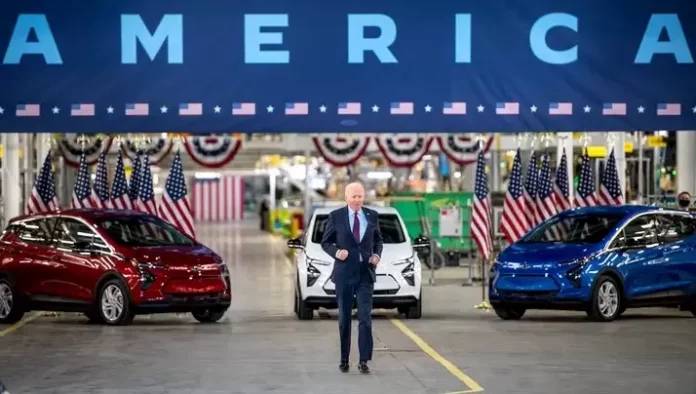The 2024 Presidential election, a potential Biden-Trump rematch, could profoundly impact the automotive industry, particularly in environmental policy and EV transition.
A shift in leadership could significantly adjust federal tax incentives, regulations, and over billions in investments in U.S. battery and EV manufacturing, potentially altering the landscape for OEMs, suppliers, and future battery plant capacities, according to an analysis from S&P Global Mobility.
Key pieces of Democratic legislation like the Inflation Reduction Act (IRA) and Bipartisan Infrastructure Law (BIL) under Biden have been instrumental in advancing the U.S. EV market. Nevertheless, a Republican victory could potentially scale back these initiatives, directly impacting the North American sourcing strategies and the wider automotive supply chain.
Moreover, regulatory stances on greenhouse gas emissions and fuel economy could see major revisions. While the Trump administration opted for less aggressive regulation, including revoking California’s emissions waiver, Biden’s administration has set more ambitious targets. Yet, with the possibility of a Republican administration, there could be a rollback to less stringent policies.
According to S&P Global Mobility, an investment of more than $100 billion was announced for U.S. battery and electric car manufacturing activities in the year that followed the IRA’s implementation in August 2022. Projects that have already begun construction are especially vulnerable.
In 2022, the U.S. was expected to operate seven battery facilities with an annual capacity of 75 gigawatt hours (GWh). However, due to the Investment Tax Credit (ITC), up to 24 battery plants are currently being planned or constructed, which could potentially increase the country’s total capacity to 732 gigawatt hours.
The outcome of current regulatory and legislative scenarios, particularly around emissions, fuel economy, and the IRA, could catalyze significant shifts in how automakers navigate the transition to EVs. As debates continue across the political spectrum on the future of these incentives, the industry remains poised for change.



